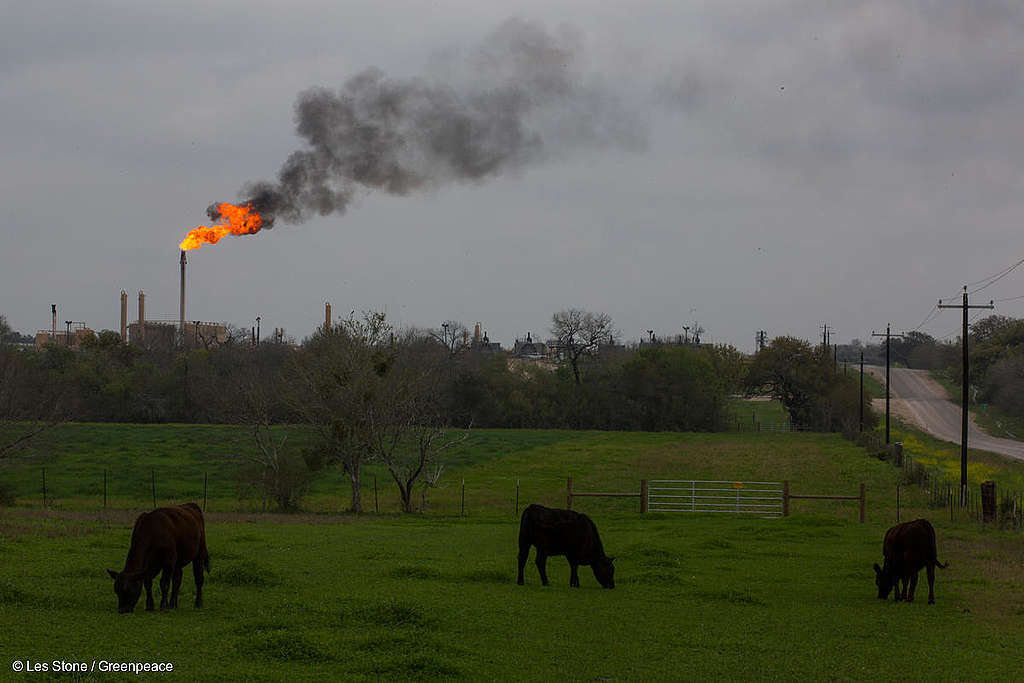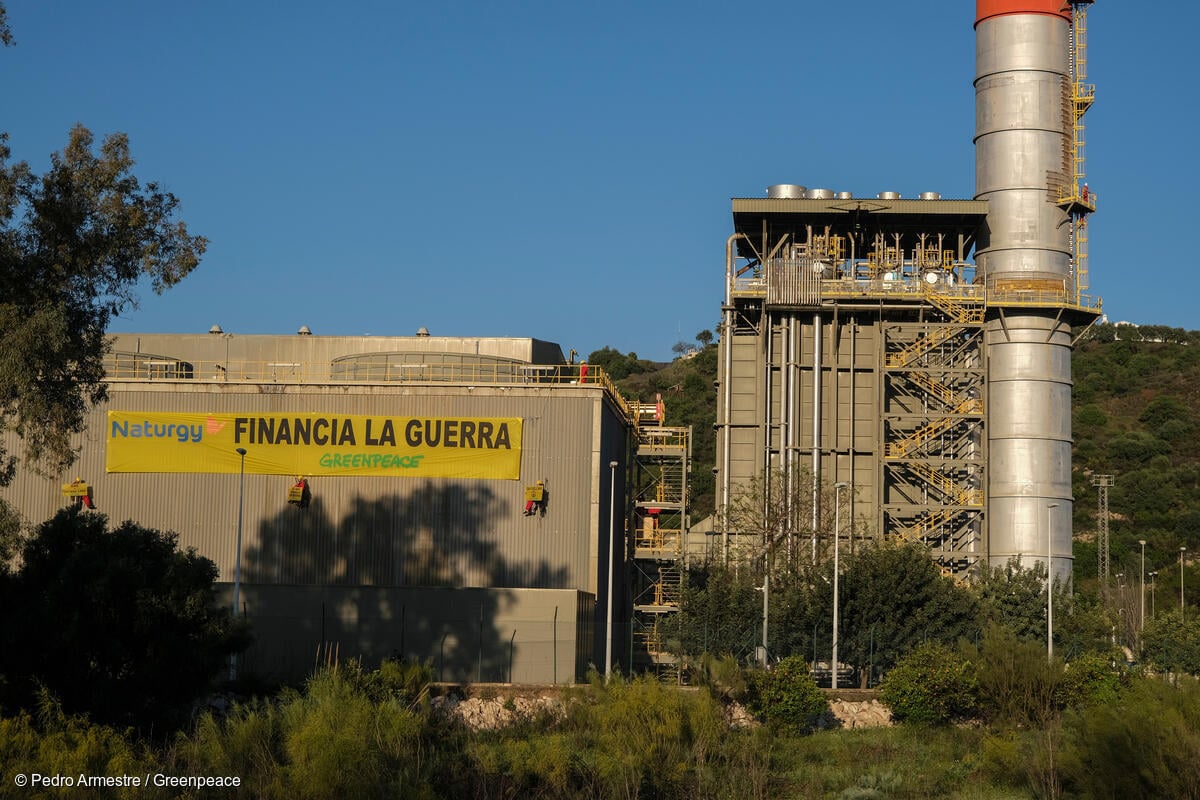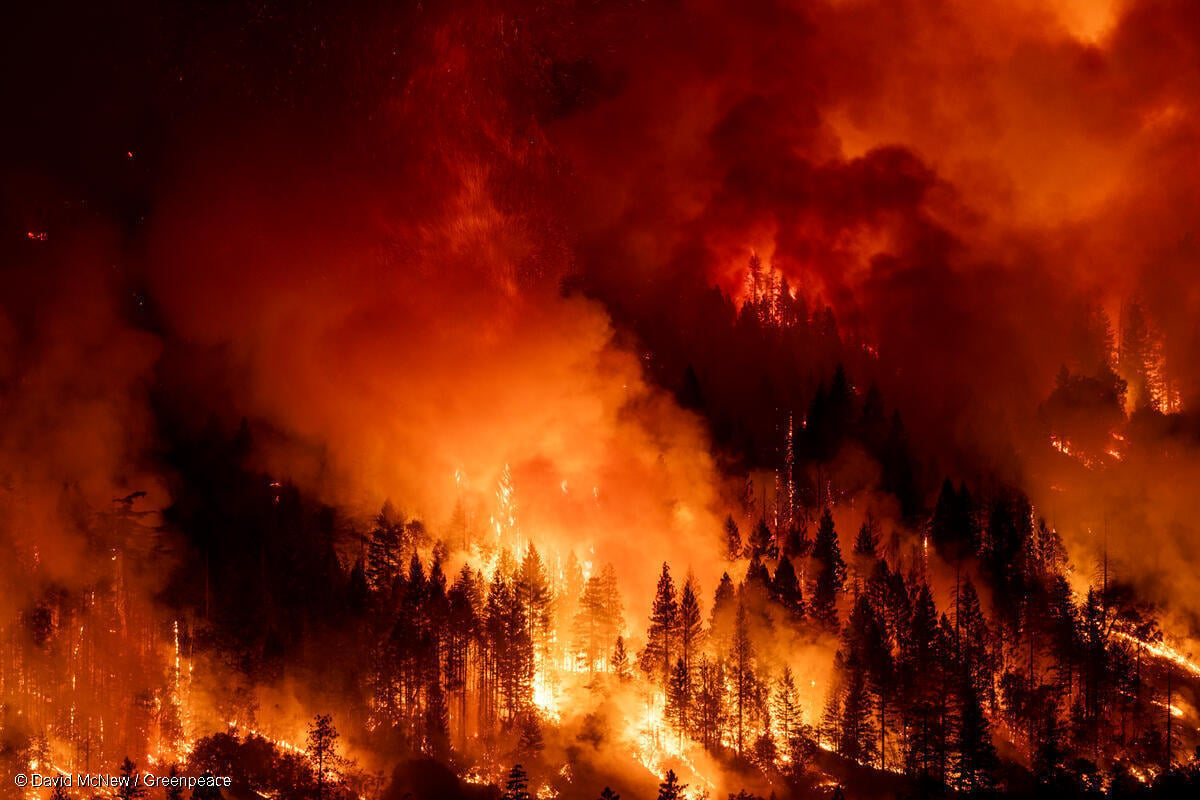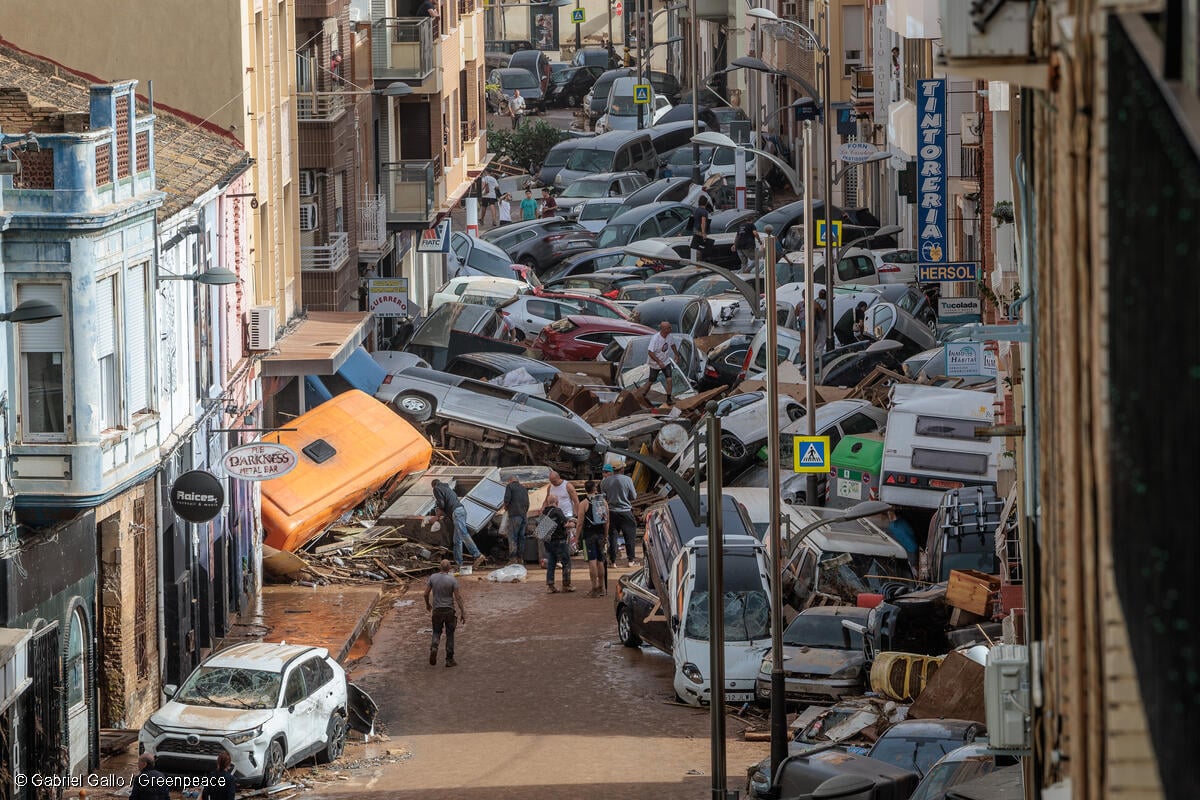Brussels – Kadri Simson, the nominee to be the next EU energy commissioner, has made conflicting promises on climate action and gas that could spell disaster for her climate credentials, Greenpeace has said.

Answering questions from members of the European Parliament’s committee on industry, research and energy, commissioner-designate Simson said that climate neutrality by 2050 is the “only sensible option”, committed to limiting global heating to 1.5°C and acknowledged that reviewing the EU’s energy laws will be necessary. However, she also reiterated her support for the continued use of gas for energy production, and investments in new gas pipelines and terminals that could be in use until after 2050.
Greenpeace EU climate and energy policy director Tara Connolly said: “Aiming for carbon-neutrality while investing in gas is like saying you’re planning to quit smoking by switching cigarette brands. Energy production is responsible for the lion’s share of the EU’s greenhouse gas emissions, so phasing out fossil fuels and accelerating renewables should be Simson’s top priorities, but she’s throwing her weight behind gas. Climate breakdown is already starting to bite, with the most vulnerable people hit the hardest in Europe and around the world. It makes no sense to say you’ll do what it takes to fight climate breakdown, while locking Europe into decades of dependence on fossil fuels.”
Fossil gas provides around 25% of Europe’s energy but this could increase if the EU and its member states continue to invest in fossil fuel projects. UN climate scientists have said that global emissions must halve by 2030 if we are to have any chance of limiting global temperature rise to 1.5°C and avoid a full-blown climate crisis. The long lifetime of energy investments means projects like gas pipelines and power plants built today could still be in use after 2050.
Greenpeace is calling for the EU to immediately end all funding for fossil fuels, including through the Connecting Europe Facility and in the revision of the European Investment Bank’s energy lending policy. Greenpeace is also calling for the EU to cut greenhouse gas emissions by at least 65% in 2030 and reach net-zero emissions by 2040, in order to get Europe on track to fulfil the goals of the Paris climate agreement.
On 23 October, the European Parliament’s plenary session is expected to vote on whether to accept or reject the incoming European Commission team.
Contacts:
Tara Connolly, Greenpeace EU climate and energy policy director: +32 (0)477 79 04 16, [email protected]
Greenpeace EU press desk: +32 (0)2 274 19 11, [email protected]
For breaking news and comment on EU affairs: www.twitter.com/GreenpeaceEU
Greenpeace is an independent global campaigning organisation that acts to change attitudes and behaviour, to protect and conserve the environment and to promote peace. We do not accept donations from governments, the EU, businesses or political parties. We have over three million supporters, and offices in more than 55 countries.



